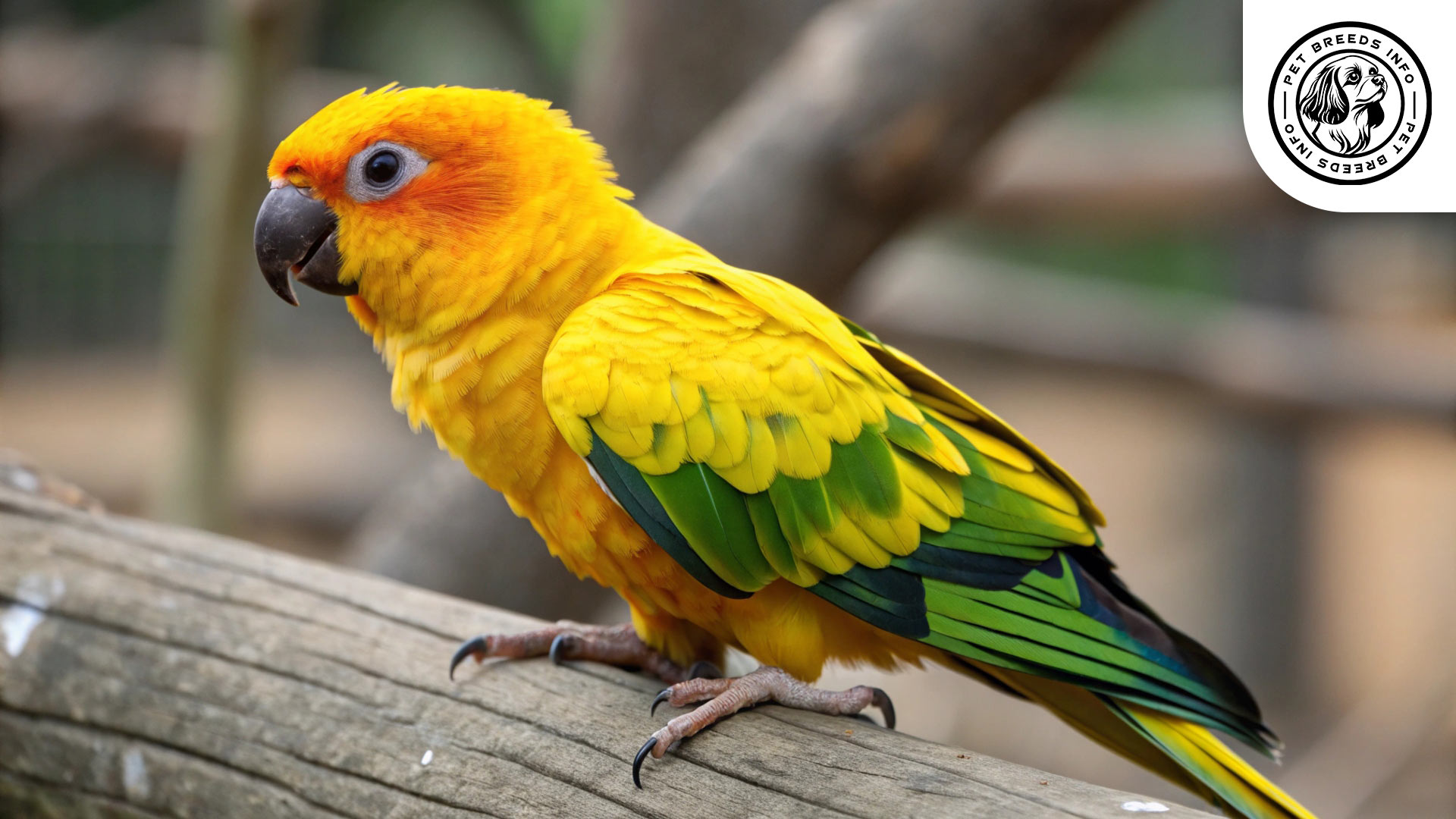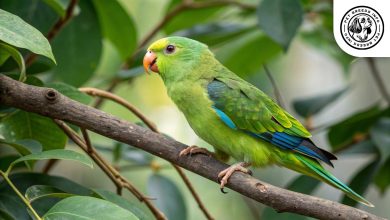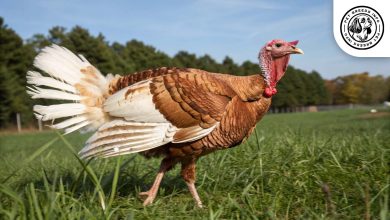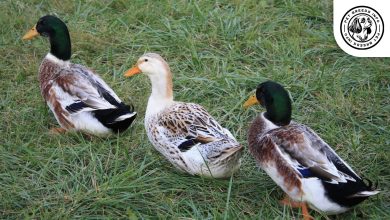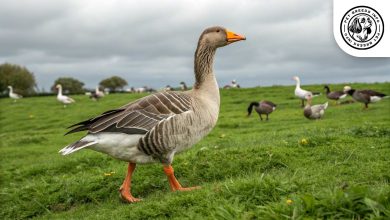Golden Conure Bird: Personality, Lifespan, Food & Care
General Introduction of the Breed
The Golden Conure (Guaruba guarouba), also known as the Golden Parakeet or Queen of Bavaria Conure, is a rare and beautiful parrot native to Brazil. This striking bird is well-known for its bright yellow plumage and playful personality.
Golden Conures originate from the Amazon basin in northern Brazil. They primarily inhabit tropical rainforests and were first described scientifically in the 18th century. Due to habitat loss and illegal pet trade, they have become a vulnerable species.
Table of Contents
| Common Name | Golden Conure, Golden Parakeet, Queen of Bavaria Conure |
| Scientific Name | Guaruba guarouba |
| Origin | Amazon basin in northern Brazil |
| Size | 13-14 inches (33-36 cm) |
| Lifespan | 20-30 years |
| Talking Ability | Can learn to mimic sounds or words with some training |
| Colors | Brilliant yellow plumage with contrasting green flight feathers |
| Noise Level | Not explicitly stated in the text, but as a conure, likely moderately vocal |
| Social Behavior | Very social, forms strong bonds with owners, generally friendly |
Physical Characteristics
Golden Conures are medium-sized parrots, typically reaching about 13-14 inches (33-36 cm) in length and weighing around 8.8-10.5 ounces (250-300 grams).
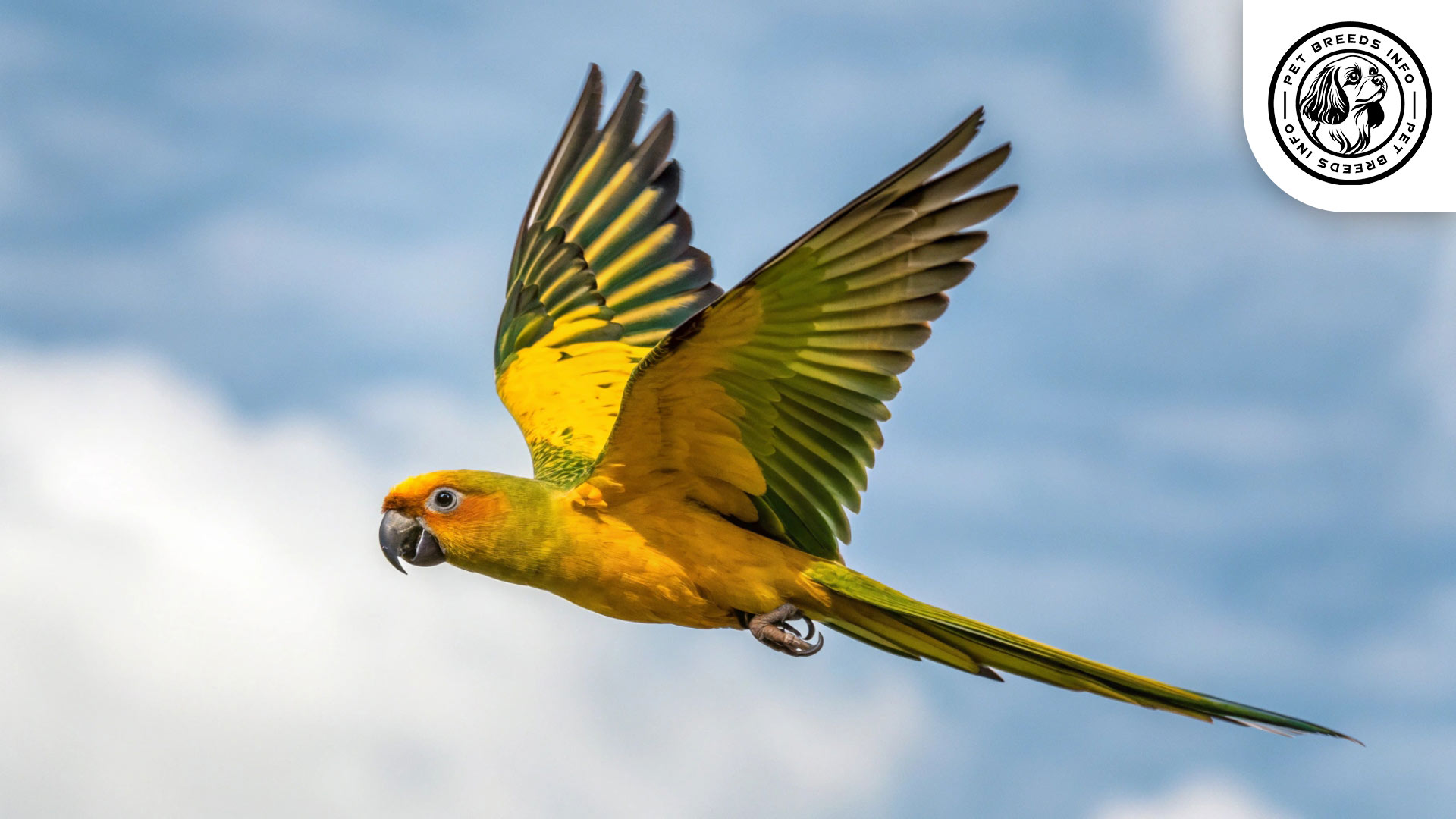
Their most striking feature is their brilliant yellow plumage, with contrasting green flight feathers. Their beak is pale, and their feet are light pinkish-gray.
Their eyes are dark brown, encircled by a featherless white ring. Their tails are long and slightly pointed.
One distinguishing physical trait is their uniform golden-yellow coloration, which makes them one of the most visually appealing parrot species.
Read More: Star Finch
Personality and Temperament
Golden Conures are highly intelligent birds that can learn tricks and even mimic sounds or words with some training.
They are very energetic and require plenty of physical and mental stimulation.
These birds form strong bonds with their owners and crave attention, making them highly affectionate pets.
Golden Conures are very social and generally friendly towards humans, children, and other birds when properly socialized.
They are naturally playful and curious, often entertaining their owners with their antics.
They can be sensitive to changes in their environment, so maintaining a consistent routine is beneficial.
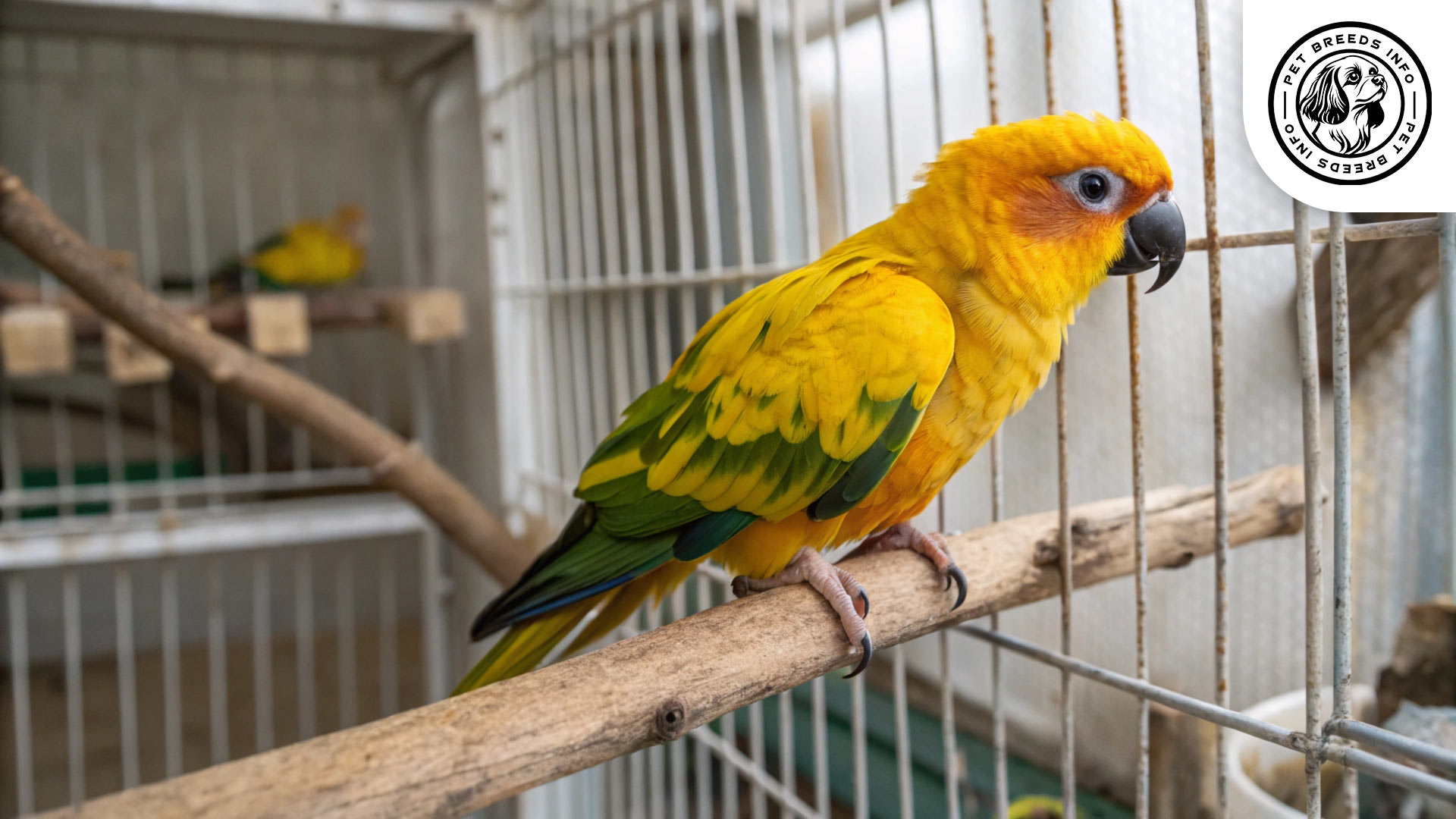
Care and Maintenance Requirements
Golden Conures need ample space to fly and explore. A large cage with plenty of toys is essential.
They thrive in homes with plenty of out-of-cage playtime and social interaction.
Due to their minimal dander and short feathers, they require low grooming maintenance but should be bathed regularly to maintain healthy plumage.
Golden Conures are sensitive to extreme temperatures and should be kept in a warm, humid environment similar to their native habitat.
Regular hygiene practices like beak conditioning, nail trimming, and occasional feather misting help maintain their health.
Diet and Nutrition
The ideal diet for a Golden Conure includes high-quality pellets, fresh fruits, vegetables, and occasional nuts.
They should avoid an all-seed diet as it lacks essential nutrients.
Toxic foods such as avocado, chocolate, caffeine, onions, and alcohol should be strictly avoided.
They should be fed in moderate portions throughout the day, with access to fresh water at all times.
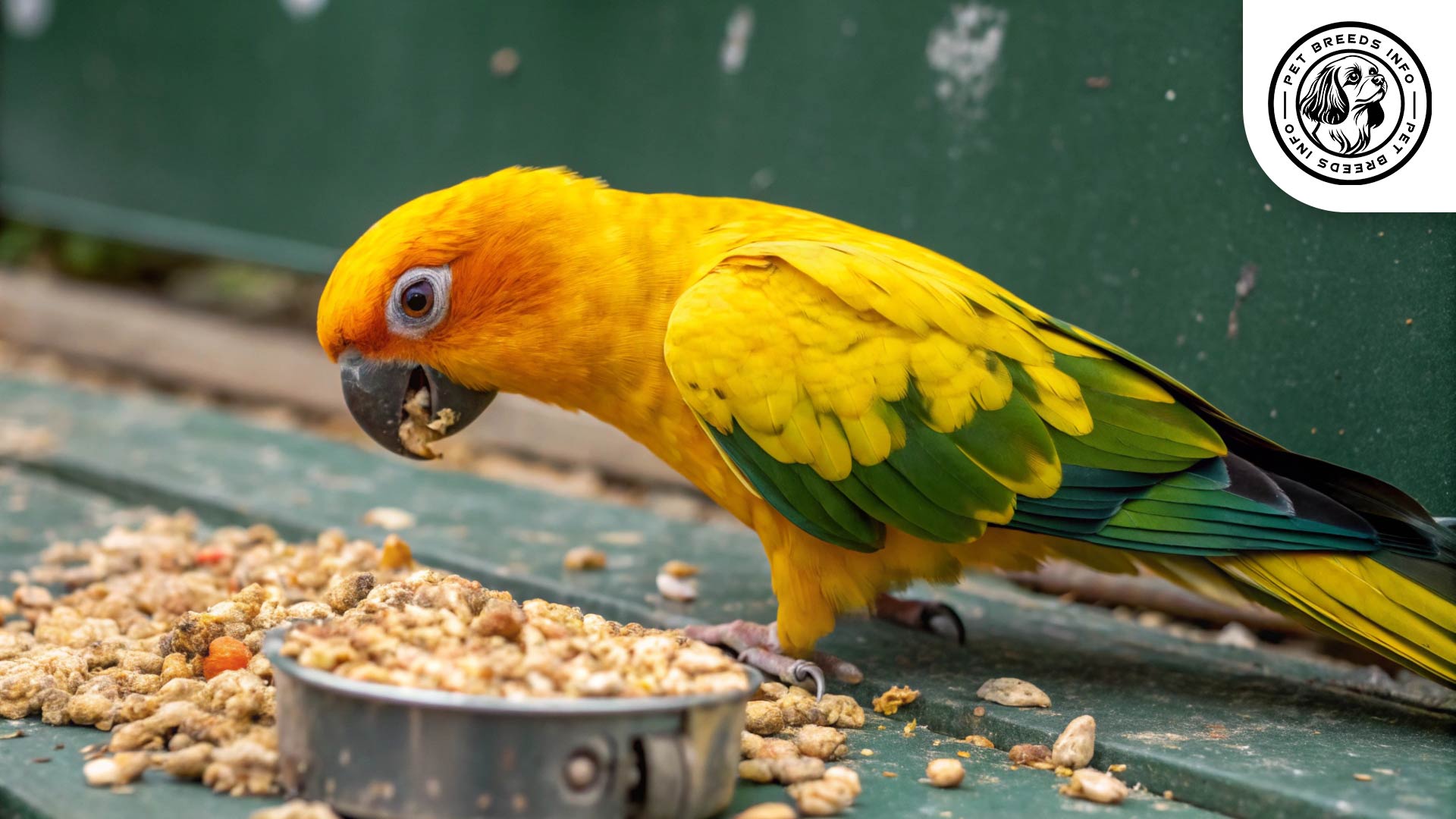
Health and Common Medical Issues
Golden Conures are susceptible to feather plucking if they do not receive enough mental stimulation.
They may develop respiratory infections if exposed to drafts or sudden temperature drops.
They need regular veterinary check-ups to monitor their health and prevent common parrot diseases like psittacosis.
With proper care, a Golden Conure can live between 20-30 years, making them a long-term commitment for bird enthusiasts.
Routine vaccinations and a clean living environment contribute to their overall well-being.
Read More: Spectacled Parrotlet
Training and Behavior Management
Golden Conures are relatively easy to train due to their intelligence and sociability.
Positive reinforcement techniques, such as praise and treats, work well in encouraging good behavior.
Early socialization is key to preventing fear-based aggression or shyness.
Repetitive training sessions focusing on bite inhibition and basic commands help them become well-behaved companions.
Consistency and patience are essential when training these parrots.
Interaction with Other Animals and Humans
Golden Conures are affectionate and enjoy human interaction, making them good pets for families with older children.
They can get along with other birds if properly introduced but may be territorial if housed in the same cage.
They thrive in homes where owners can dedicate time to their social needs.
They are highly dependent on human companionship and do best in interactive households.
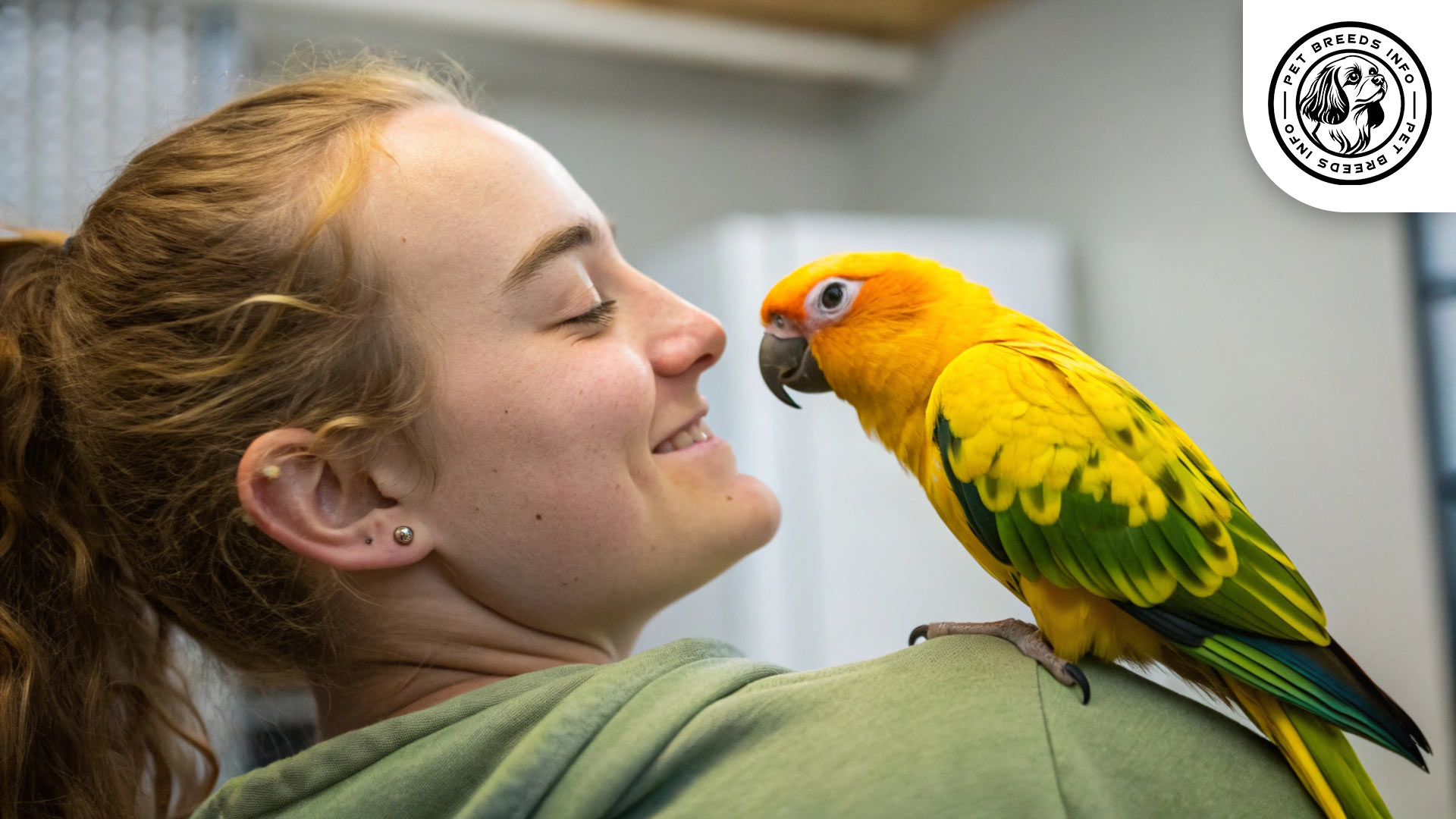
Price and Availability
The price of a Golden Conure varies between $1,500 and $3,000, depending on factors like age, breeder reputation, and location.
Due to their conservation status, they are not as commonly available as other parrot species.
Prospective owners should seek reputable breeders who follow ethical breeding practices.
Adoption through specialized bird rescues or avian organizations is also an option.
Conclusion and Final Thoughts
Golden Conures are loving, intelligent, and highly interactive birds, making them excellent pets for experienced bird owners.
They require a lot of attention, space, and mental stimulation, so they are best suited for individuals or families who can dedicate time to their care.
Potential owners should consider their long lifespan and high social needs before committing to this breed.
The Golden Conure is a rare and stunning parrot that rewards its owners with affection, entertainment, and companionship.
Read More: Short-billed Black Cockatoo
FAQ
What is a Golden Conure known for?
Golden Conures are known for their bright yellow plumage and playful personality.
Where do Golden Conures come from?
They originate from the Amazon basin in northern Brazil.
How long do Golden Conures typically live?
With proper care, they can live between 20-30 years.
Are Golden Conures good at talking?
They are intelligent and can learn to mimic sounds or words with some training.
